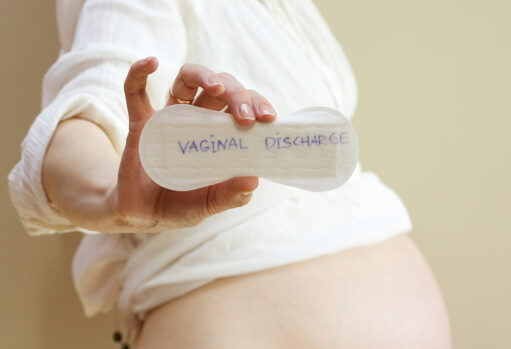Vaginal discharge serves an important housekeeping function in the female reproductive system. Fluid made by glands inside the vagina and cervix carries away dead cells and bacteria. This keeps the vagina clean and helps prevent infection.
What causes abnormal discharge?
Any change in the vagina’s balance of normal bacteria can affect the smell, color, or discharge texture. These are a few of the things that can upset that balance:
- Antibiotic or steroid use
- Bacterial vaginosis, a bacterial infection more common in pregnant women or women who have multiple sexual partners
- Birth control pills
- Cervical cancer
- Chlamydia or gonorrhea (STDs), sexually transmitted infections
- Diabetes
- Douches, scented soaps or lotions, bubble bath
- Pelvic infection after surgery
- Pelvic inflammatory disease (PID)
- Trichomoniasis, a parasitic infection typically contracted and caused by having unprotected sex
- Vaginal atrophy, the thinning and drying out of the vaginal walls during menopause
- Vaginitis, irritation in or around the vagina
- Yeast infections
How is abnormal discharge treated?
Yeast infections are usually treated with antifungal medications inserted into the vagina in cream or gel form. Bacterial vaginosis is treated with antibiotic pills or creams. Trichomoniasis is usually treated with the drug metronidazole (Flagyl) or tinidazole (Tindamax).
Here are some tips for preventing vaginal infections that can lead to abnormal discharge:
- Keep the vagina clean by washing with a gentle, mild soap and warm water on the outside. There is no need to put soap directly in the vagina.
- Never use scented soaps and feminine products or douche. Also avoid feminine sprays and bubble baths.
- After going to the bathroom, always wipe from front to back to prevent bacteria from getting into the vagina and causing an infection.
- Wear 100% cotton underpants, and avoid overly tight clothing.
 JARROW FORMULAS L Carnitine 500 500 mg 100 Capsules
1 × 4,054.14 ₹
JARROW FORMULAS L Carnitine 500 500 mg 100 Capsules
1 × 4,054.14 ₹ JARROW FORMULAS N A G 700 mg 120 Veggie Caps
1 × 2,574.54 ₹
JARROW FORMULAS N A G 700 mg 120 Veggie Caps
1 × 2,574.54 ₹ Element Lifesciences Weight Loss Garcinia Cambogia with green coffee enhanced with black pepper 90 Veg Capsules
1 × 359.10 ₹
Element Lifesciences Weight Loss Garcinia Cambogia with green coffee enhanced with black pepper 90 Veg Capsules
1 × 359.10 ₹ NOW FOODS St John'S Wort 300Mg 250 Capsules
1 × 4,319.10 ₹
NOW FOODS St John'S Wort 300Mg 250 Capsules
1 × 4,319.10 ₹
 JARROW FORMULAS L Carnitine 500 500 mg 100 Capsules
JARROW FORMULAS L Carnitine 500 500 mg 100 Capsules  JARROW FORMULAS N A G 700 mg 120 Veggie Caps
JARROW FORMULAS N A G 700 mg 120 Veggie Caps  Element Lifesciences Weight Loss Garcinia Cambogia with green coffee enhanced with black pepper 90 Veg Capsules
Element Lifesciences Weight Loss Garcinia Cambogia with green coffee enhanced with black pepper 90 Veg Capsules  NOW FOODS St John'S Wort 300Mg 250 Capsules
NOW FOODS St John'S Wort 300Mg 250 Capsules 